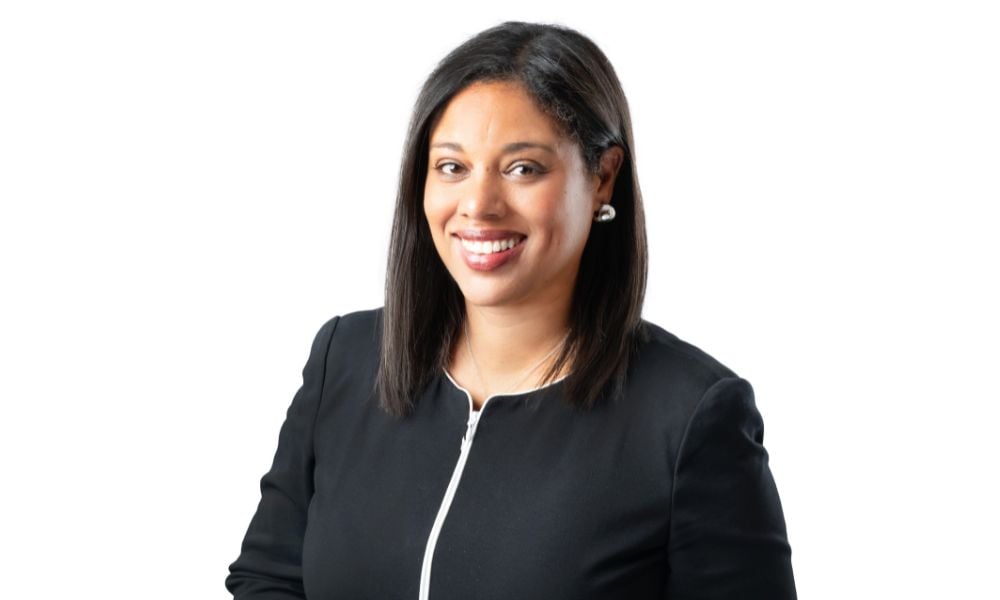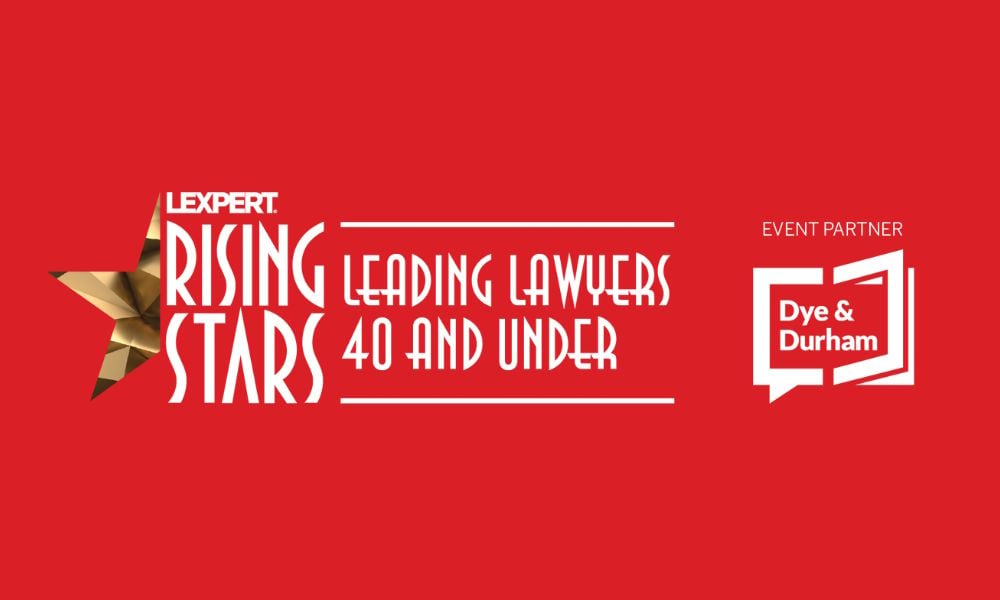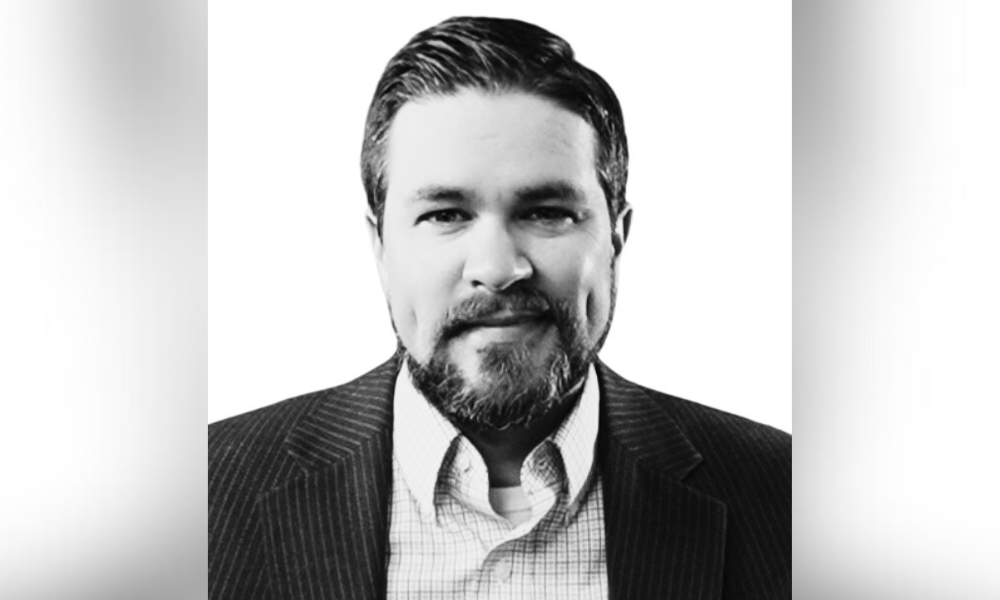IP lawyer and managing partner at Bennett Jones’ Toronto office discusses what makes a good litigator

Growing up, Dominique Hussey, intellectual property lawyer and managing partner of the Toronto office of Bennett Jones LLP, had two major influences on where her career might go. Her parents.
One was a doctor, the other a lawyer. “Those were the two professions I focused on,” says Hussey. “Not just because they were two areas that I was close to because of my parents, but because I had a deep interest in both.”
So armed with an undergraduate degree in science from McGill University, with a minor in classics, she aimed to marry law and medicine by becoming a medical ethicist.
Latest News
She ended up applying to law school first. In her third year in McGill’s law program, she was introduced to intellectual property law, and she was hooked.
“It became clear to me that I would stay with law and focus on science in the context of patent law.”
Hussey’s practice involves all aspects of IP litigation and dispute resolution - patent, trademark, copyright, contracts, and trade secrets - with particular emphasis on litigation involving pharma and biotech and energy-related patents and trademarks.
What she finds most interesting about intellectual property law is the chance to focus on some “very precise issues” within the larger picture of commercial disputes.
“When you represent a pharmaceutical company, or a mining company in a patent dispute, you learn about the commercial issues that that company faces,” she says. “But in addition to that, you learn about the precise technology, and you have to learn it well - at an expert level - to work with your own experts and take on others’ experts.”
With a strong interest in music, Hussey also likes to grapple with copyright and artistic ownership issues. “It’s not just about the music industry. You need that specialized knowledge when you represent someone in an intellectual property or copyright dispute. All of that is fascinating.”
Her study of classics has also helped Hussey in her job as a litigator – not only giving her the ability to take the expert knowledge she has digested but also making sure that it translates into a persuasive, easily understood argument, whether the audience is a judge or a judge and jury.
“Studying classics made me love words and their meaning,” she says. She particularly loves “parsing sentences and selecting words very carefully to ensure they are used to convey the meaning of what I want to say.”
A litigator in intellectual property disputes also must find the proper expert witnesses, which means not only having the specific expertise needed to make her clients’ case but someone who can convey that message “and capture the imagination and trust of the triers of fact.”
A background in performance – whether in music or the stage – has also helped Hussey as a litigator. However, she says being in the courtroom can be a very different experience than reading a script or performing written music.
“It’s very different because you have to be responsive to what is happening in the moment and not just doing something that you have practiced for hours,” she says, noting that even today, she still gets nervous.
“But now, I embrace the nervousness because it means that I will have the edge when I go into the courtroom,” she says. “I figure that when I stop being nervous it means I don’t care anymore. In the beginning, I would have called that nervousness debilitating. Now, I think it’s exciting and energizing.”
Hussey says listening is a vital skill that lawyers need to master. “I think that one of the biggest mistakes people make is not listening to the answer the witness is giving,” she says. “Whether you’re doing a direct examination or a cross-examination, you have to listen to what the witness says because that is the evidence before the court. And very often, a pearl dropped.”
She adds: “If a lawyer is just plowing through the questions that were scripted or leads a witness through direct examination without listening, you might not elicit some information that you expect to come out based on having worked with the witness ahead of time.”
Looking for the reaction of the judge or members of the jury is also crucial. “Watching a judge’s reaction and listening carefully to the types of questions that the judge is asking can give you important clues. It gives you insight into what issues are bothering the judge and what areas you need to focus on to have things go in favour of your client.”
Hussey says one strategy for lawyers starting out is finding someone to admire and perhaps emulate while understanding that it’s also vital to develop your own style. And being too aggressive to show control can convey the exact opposite.
“That doesn’t mean you don’t fight zealously for your clients. You do. But you don’t fight for the sake of fighting,” she says, adding there are lawyers “who are the most soft-spoken people, yet are the best advocates because they can command the respect of the court and their colleagues.”
And there is no substitute for hard work. “You have to review the documents. You have to read the cases and understand that you have never finished developing your skills, whether reading skills, forensic skills, cross-examination or discovery, or oral advocacy skills. They can be developed and honed over a career. And while we always practice, we will never perfect it.”
Despite her heavy workload - in addition to her management role, she leads Bennett Jones’ Intellectual property litigation group and is co-head of its innovation, technology and branding group - Hussey has taken a key role in the Advocates’ Society, recently named as its president for 2023-24.
One issue the society has focused on is urging the federal, provincial, and territorial governments to dedicate resources to the civil and family justice courts, given that delays are “putting us on the pathway to a crisis that will lead to a lack of confidence in the legal system.”
It’s an issue that all stakeholders in the system must pay attention to and address before they reach crisis proportions.
To highlight the problem and offer solutions, the Advocates Society recently published a report called Delay No Longer. The Time to Act Is Now. It includes some of the day-to-day experiences of society members and their clients and offers some ideas for moving forward.
However, Hussey acknowledges there are no easy solutions for these delays. “I want to emphasize that the issues are multifaceted and therefore require a multifaceted solution.”
She adds that the society looks forward to working with all stakeholders “because it might involve money, it might involve technology, it might involve reorganization or a triage system.”
However, the bottom line is that changes are needed for Canadians to have confidence in the legal system regarding civil cases.






